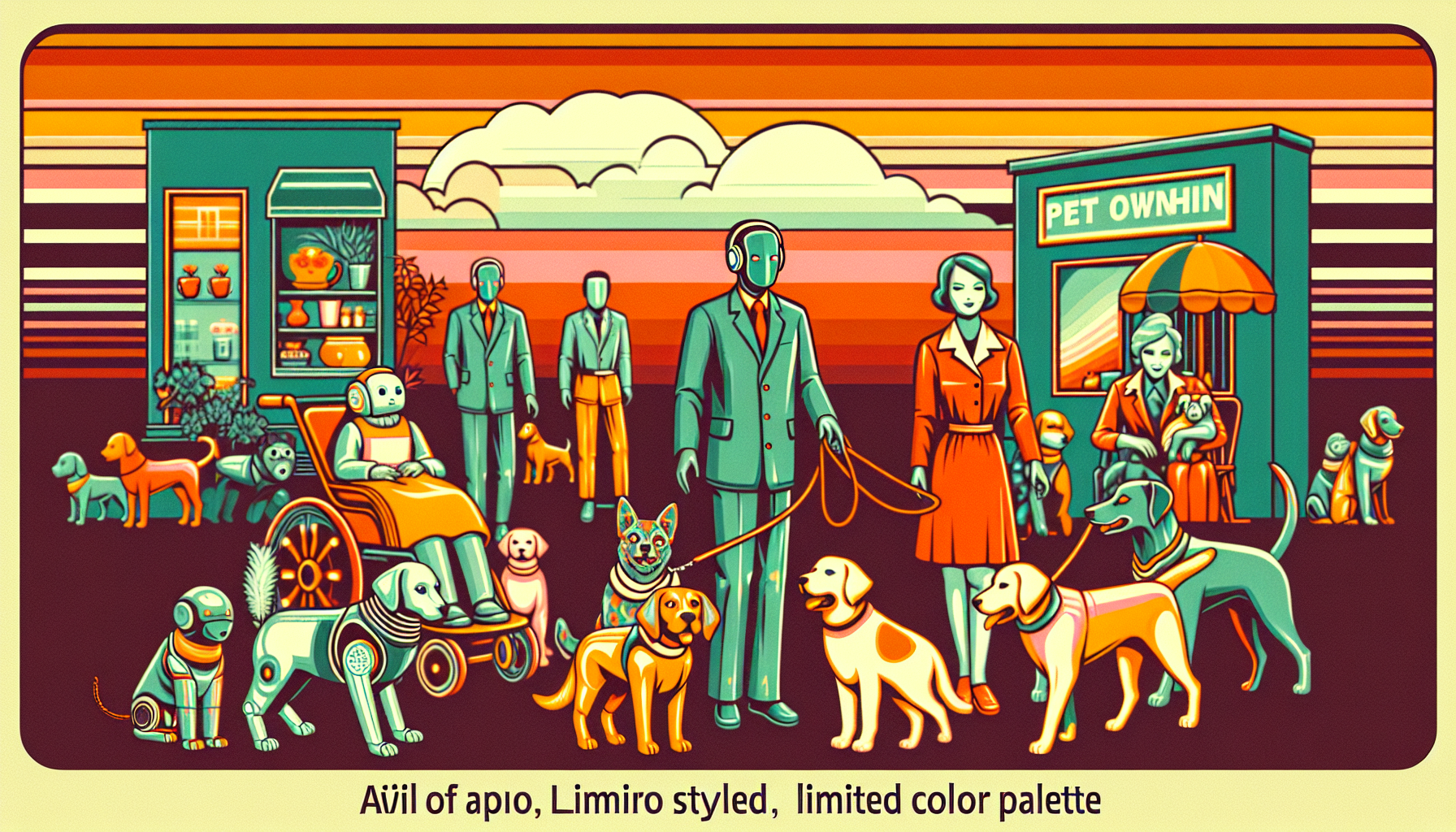The landscape of pet ownership is evolving in remarkable ways with the emergence of AI pets. These futuristic companions blend cutting-edge technology with the emotional warmth we typically associate with our furry friends. This progression is not only reshaping our interactions with pets but also carving new paths in technology and wellness.
Understanding AI Pets
AI pets, or artificial intelligence pets, are digitally engineered or robotic companions that mimic the experience of having a real pet. By combining advancements in robotics and AI, these creatures exhibit lifelike behaviors and responses. Take, for instance, Sony’s Aibo, a robotic pup capable of learning and adapting to its surroundings. It recognizably mimics emotions, learns from human interaction, identifies voices, and navigates its environment using an array of cameras and sensors.
Leading Examples
Several innovators lead the charge in developing these artificial companions:
Moflin by Casio
Casio’s Moflin is an AI-powered soft companion designed to be cuddled, offering an emotional bond mirroring that with real pets yet without the full responsibility. This small, furry robot moves and reacts in ways that provide solace and companionship.
Aibo by Sony
Previously mentioned, Aibo remains a hallmark AI pet. With emotional responsiveness, learning abilities, voice recognition, and online interaction capabilities, it serves as an intensely engaging companion.
Tombot and Yukai Engineering
Companies like Tombot and Yukai Engineering bring their unique AI pet versions to the market. Tombot’s robotic dogs offer comfort and support, serving particularly the elderly or those unable to care for a live pet. Yukai’s endeavors similarly forge emotional bonds through interactive features and lifelike behaviors.
Benefits and Features
AI pets provide numerous appealing advantages:
Emotional Support
Particularly valuable for those living solo or with allergies, AI pets simulate the companionship of real pets without demanding care responsibilities. They extend comfort and interaction when needed most.
Interactive Features
AI pets incorporate interactive tools like voice commands and gesture recognition. For example, WowWee’s CHiP, an AI-powered robotic dog, can follow its owner, respond to commands, and engage in empathetic behaviors like play.
Health and Wellness
Though AI pets require no health checks, the technology enhances real pet care. AI-powered devices, like smart collars, help monitor a pet’s health metrics, detecting early signs of illness or behavioral shifts.
Entertainment and Mental Stimuli
AI gadgets keep pets mentally stimulated, even in their owner’s absence. The CleverPet Hub, for instance, challenges dogs with lights and sounds, continually adapting to mitigate boredom.
Economic and Market Insights
The wave of AI pets is redefining pet care economically. Often paired with subscription services, these innovations are paving the way for steady revenue streams. By the end of the decade, the pet industry, surging towards a $500 billion mark, is increasingly attracting investment into AI advancements. South Korea, for instance, aims to evolve its pet industry into a $15 trillion market by 2027.
Challenges and Insights
Despite their benefits, AI pets introduce challenges:
Privacy and Ethics
AI in pet care invites privacy concerns and ethical debates. These devices amass and process extensive data, necessitating secure handling to protect user privacy. Missteps may erode the cherished human-animal bond.
Bias and Training Citadel
For AI to interact reliably or accurately, it needs diverse training data. Insufficient training can result in AI systems misjudging or neglecting specific health issues or behaviors, particularly among diverse pet demographics.
Conclusion
AI pets signify an exciting shift within technology and wellness, marrying advanced technology with emotional solace. As innovation continues, these AI companions promise to revolutionize not only our pet interactions but also the broader pet care arena. Though challenges persist, the promising interplay between companionship, health, and leisure places AI pets at the forefront of future pet care solutions.

Leave a Reply